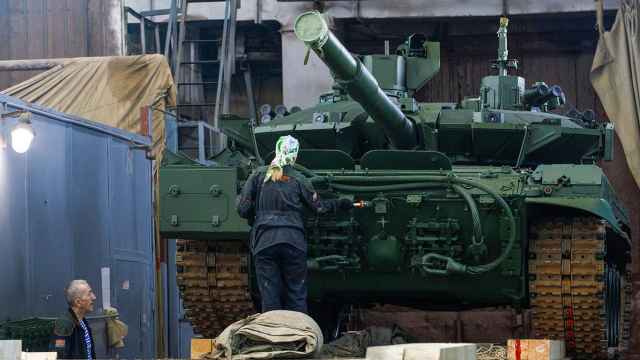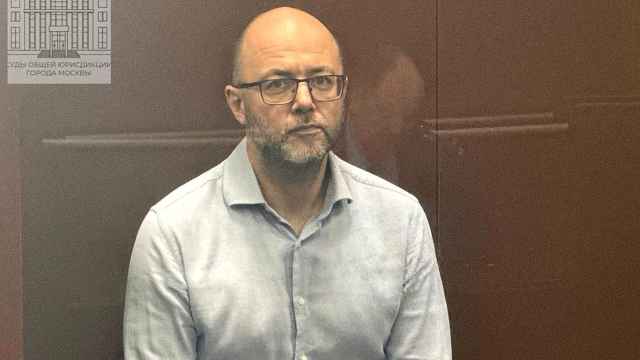Finance Minister Anton Siluanov said Thursday that political and economic reforms should be carried out within Russia’s means and without recourse to new debt or an excessive dependence on a high oil price.
Siluanov, who replaced long-serving Alexei Kudrin in September, told the Gaidar Forum in Moscow that he opposed an increase in budget spending of 2 percent of GDP, or more than a trillion rubles ($31.7 billion) a year, through 2020.
“We have to look at our existing resources,” Siluanov said, Interfax reported. “And they are not small.” He singled out a “bloated” public sector for potential savings and said that if the budget was to be in line with average oil price predictions over the next 10 years it should be balanced at $70 a barrel.
The current break-even oil price for the budget is $117, while Urals crude was trading at about $110 on Thursday. Energy revenue was 49.7 percent of total budget revenue in 2011, according to Finance Ministry data.
“If the oil price falls, then we could waste our reserves very quickly,” said Siluanov. The government was already planning to borrow 1.8 trillion rubles on the internal market in 2012, he added, and warned that forcing this any higher could “remove the liquidity from all our financial institutions.”
Russia reported its first budget surplus in three years on Thursday as 416.53 billion rubles in 2011, or 0.8 percent of gross domestic product, the Finance Ministry said on its web site. Total budget revenue was 11.35 trillion rubles.
When Siluanov was elevated to the top job in the Finance Ministry last year, some experts suggested that his appointment would initiate a step back from the highly regarded fiscal conservatism of his predecessor.
Kudrin, who spoke at an opposition rally on Dec. 24, said Thursday that despite growing expenditures there is little long-term economic planning by the Russian government.
“Outside the three year time frame we do not know how to distribute resources to the required areas or have a harmonious strategy,” he said. “In short, we do not have an approved strategy beyond the three-year horizon.”
Central Bank chairman Alexei Ulyukayev said Thursday that capital outflow from Russia had continued during January, but that the country may experience net inflows during 2012, Bloomberg reported. About $84.2 billion left the country in 2011.
The Central Bank also said the total credit granted by Russian banks had grown dramatically in 2011. Lending to private individuals rose 35.9 percent and to companies by 26 percent.
Deputy chairman Alexei Simanovsky said lending by Russian banks in 2012 was likely to rise 20 percent to 25 percent, Interfax reported. However, record bank profits in 2011 are unlikely to be repeated, he said.
A Message from The Moscow Times:
Dear readers,
We are facing unprecedented challenges. Russia's Prosecutor General's Office has designated The Moscow Times as an "undesirable" organization, criminalizing our work and putting our staff at risk of prosecution. This follows our earlier unjust labeling as a "foreign agent."
These actions are direct attempts to silence independent journalism in Russia. The authorities claim our work "discredits the decisions of the Russian leadership." We see things differently: we strive to provide accurate, unbiased reporting on Russia.
We, the journalists of The Moscow Times, refuse to be silenced. But to continue our work, we need your help.
Your support, no matter how small, makes a world of difference. If you can, please support us monthly starting from just $2. It's quick to set up, and every contribution makes a significant impact.
By supporting The Moscow Times, you're defending open, independent journalism in the face of repression. Thank you for standing with us.
Remind me later.






